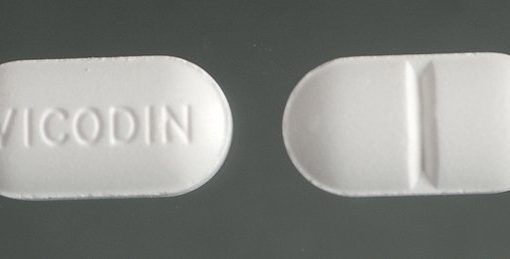How Long Does Vicodin Stay in Your System?
Vicodin is a prescription, brand name drug that contains hydrocodone and acetaminophen. The drug can affect a person for several hours, but traces of it can actually stay in the individual’s system for even longer. Call 800-994-1867Who Answers? now to find safe, effective rehab centers that will help you or someone you love put an end to Vicodin abuse.
The Dangers of Vicodin
Like other prescription opioid drugs, Vicodin can cause a number of serious side effects, chief among them being addiction. When a person begins to use the drug in a way other than prescribed by a doctor, including more often, in greater doses, or in a different way than prescribed, they put themselves at risk of becoming severely dependent on the drug and, eventually, addicted. According to the National Library of Medicine, other serious side effects Vicodin can cause include:

Drowsiness and fuzzy thinking are common Vicodin side effects.
- Constipation
- Drowsiness
- Lightheadedness
- Fuzzy thinking
- Anxiety
- Abnormally happy or abnormally sad mood
- Dry throat
- Difficulty urinating
- Rash
- Itching
- Narrowing of the pupils
- Slowed, irregular or no breathing
- Hallucinations
- Nausea
- Vomiting
- Coma
- Death
How Long Can the Drug Stay in Your System?
Those who take Vicodin, even as prescribed, will usually experience drowsiness, confusion, and lightheadedness for 4 to 6 hours. This timeline reflects how long the drug will continue to affect a person’s faculties, but in truth, the medication actually lingers in an individual’s system longer than this.
Urine tests can often detect Vicodin in a person’s system up to 5 days after the drug was taken. This is because trace amounts of the medication can linger in an individual’s body even if they are not currently being affected by it. As a result, it is important to talk to your doctor before going on Vicodin about any other medications or supplements you are taking that may interfere with the drug.
How much Vicodin you use––and how you use it––can also affect the time it takes for the drug to leave your system. If you have been abusing Vicodin or other types of opioid drugs consistently and for a long time, you are likely to begin storing Vicodin in the fatty tissues of your body, which will cause the drug to take longer to leave your system.
In many cases, those who use drugs frequently can’t just stop for a week and pass a drug test, partly because the drug will build up in their system over time and partly because many addicts cannot stop using for this long, no matter how hard they try.
How Long Before Withdrawal Symptoms Set In?
A person who is dependent on Vicodin, whether because of a doctor’s prescription or because they are abusing the drug, can expect to notice withdrawal symptoms about 6 to 12 hours after their last dose. This occurs because, when taken consistently over a long period of time, drugs like Vicodin cause physical and psychological withdrawal symptoms, such as
- Agitation
- Confusion
- Anxiety
- Depression
- Insomnia
- Muscle, bone, and joint pain
- Tearing of the eyes (crying)
- Runny nose
- Sweating
- Diarrhea
- Nausea
- Vomiting
- Yawning
- Dilated pupils
- Goose bumps
- Abdominal cramps
According to the National Library of Medicine, Vicodin withdrawal will occur after about 6 or 12 hours because it is a short-acting opioid drug. Other drugs, like extended-release opioids or long-acting medications like methadone, will usually not cause a withdrawal syndrome until 30 or so hours after the individual’s last use.
Can I Get Help for Vicodin Abuse?
Absolutely. It is best to seek help as soon as possible for Vicodin misuse and addiction so you won’t have to go through withdrawal symptoms on your own. Seeking treatment in a rehab center, especially one equipped to handle withdrawal, is a good way to ensure that you will be able to put an end to your substance abuse and focus on recovery.
Methadone maintenance is a particularly effective option for opioid addiction recovery. It’s been used to treat this issue for over forty years. If you believe methadone maintenance may be right for you, call 800-994-1867Who Answers? now.
